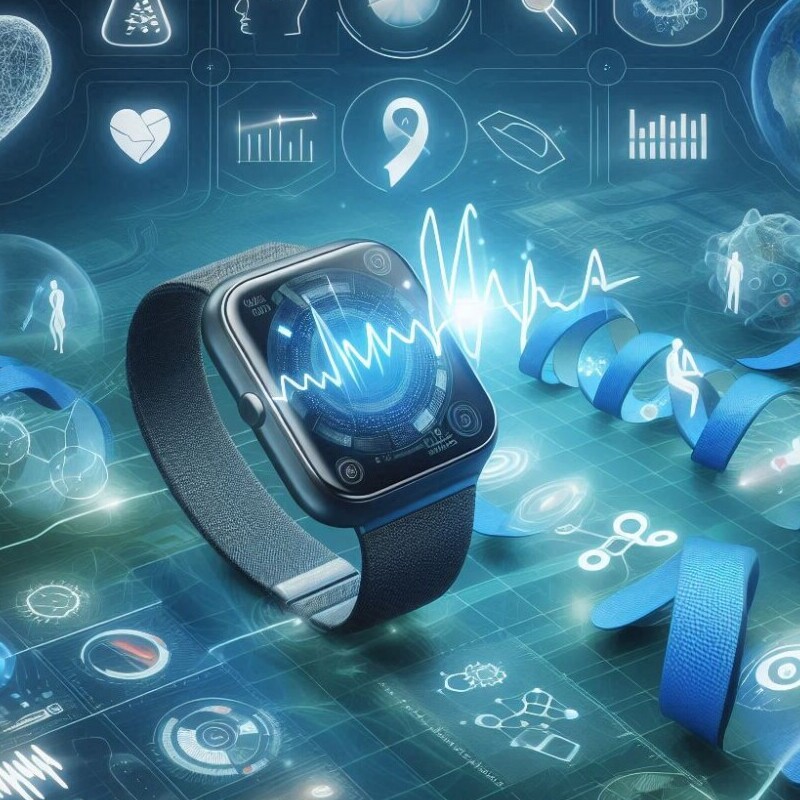
Wearable technology has come a long way from the basic pedometers of the past. Today’s wearables, like smartwatches and fitness trackers, are packed with sensors and features that can gather extensive health data. These devices are not just about counting steps; they’re capable of monitoring heart rate, tracking sleep patterns, and even detecting irregularities that might need medical attention.
The journey of wearable tech began with simple devices designed to track physical activity. Over time, advancements in technology have transformed these gadgets into powerful multi-functional tools. From Fitbit’s first wristband to Apple’s sophisticated smartwatches, wearable tech has evolved rapidly, making significant strides in personal health management.
One of the key innovations in wearable technology is the integration of Artificial Intelligence (AI). AI algorithms analyze the raw data collected by these devices, providing meaningful insights that can help you make informed decisions about your health. AI-powered wearables can predict health trends, suggest personalized fitness routines, and even alert you to potential health risks before they become serious issues.
With AI integrated into wearable devices, you’re not just getting data; you’re getting actionable insights. Imagine having a personal health assistant who learns from your habits and offers tailored advice to help you stay on track. This level of personalization ensures that your wearable device is more than a gadget; it becomes a pivotal part of your health regimen, guiding you towards a healthier lifestyle.
Health Benefits of Wearable Tech
Wearable tech offers various health benefits that can impact your daily life positively. These devices monitor your vital signs and health metrics in real-time, giving you valuable insights into your body’s functioning. Heart rate, calorie burn, and stress levels are just some of the data points you can track to understand your health better.
Promoting physical activity is another significant advantage. Many wearables come with built-in fitness trackers that can motivate you to move more. By setting daily step goals, you can stay active and reduce the risk of a sedentary lifestyle. Regular reminders to stand up, walk, or exercise can make a big difference in maintaining an active routine.
Sleep is crucial for overall well-being, and wearable tech can help you improve your sleep patterns. By tracking your sleep cycles, these devices provide insights into the quality and duration of your sleep. With detailed reports, you can identify disruptions and adopt healthier sleeping habits like a consistent bedtime or a calming pre-sleep routine.
For managing chronic diseases such as diabetes or hypertension, wearables can be game changers. They allow for continuous monitoring of health conditions, enabling you to keep tabs on blood sugar levels or blood pressure. This real-time data can be shared with healthcare providers for better disease management and timely interventions.
One of the most significant benefits is the personalized health insights you gain. Wearable tech uses the data it collects to offer tailored recommendations that suit your specific needs. Whether it’s a new diet plan, a custom workout, or stress-relief techniques, having personalized advice helps you make informed decisions to improve your health.
Wearable Tech: A Pathway to a Healthier and Happier Lifestyle

The convenience of wearable tech lies in its ability to provide reliable, real-time health data at your fingertips. By continuously gathering and analyzing this data, wearables help you stay informed about your body’s status throughout the day. Knowing your vitals in real-time can empower you to make proactive health decisions, addressing issues before they escalate.
Proactive health management is one of the standout advantages of incorporating wearable tech into your lifestyle. Alerts and notifications for abnormal readings encourage you to seek medical advice, when necessary, potentially catching problems early. Setting personalized health goals and tracking your progress can also motivate you to stay committed to a healthier lifestyle.
Self-awareness is a vital component of well-being, and wearable devices foster this by continuously providing feedback. Understanding your daily habits and health patterns helps you make meaningful changes. Whether it’s improving your diet, increasing your activity level, or managing stress, these insights turn awareness into action.
Integration with other health and wellness apps amplifies the utility of wearable tech. Syncing your device with apps focused on diet, meditation, or specific fitness activities offers a holistic approach to health management. This interconnectedness ensures that all aspects of your well-being are addressed comprehensively.
Over time, the long-term benefits become apparent as wearables contribute to sustained well-being and happiness. Consistent use promotes better health habits, reduces the risk of chronic diseases, and enhances your overall quality of life. Feeling healthier and more in control leads to a happier, more enjoyable lifestyle, creating a positive feedback loop that reinforces itself.

